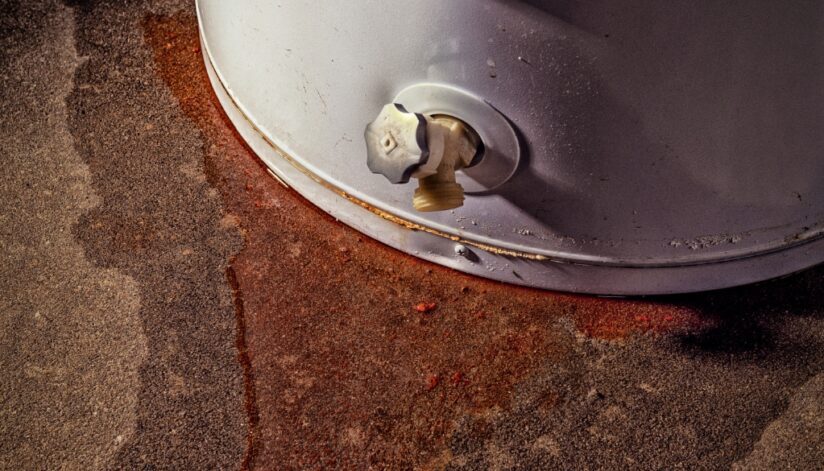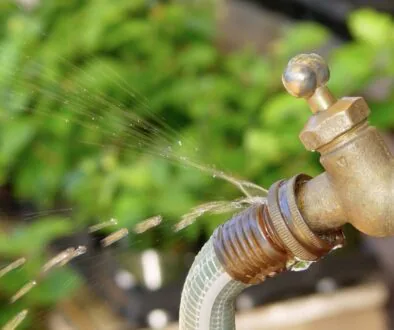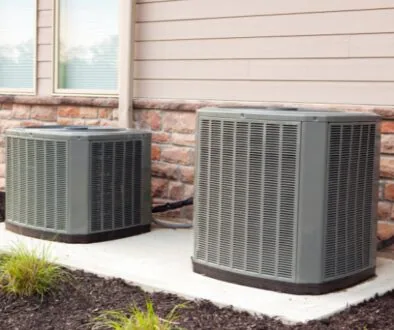5 Signs It’s Time To Replace Your Water Heater
Your water heater is one of the most essential appliances in your home, providing hot water for showers, cleaning, and other daily tasks. However, like all appliances, water heaters don’t last forever. At Niebuhr Plumbing, Heating, and Air Conditioning, we understand how critical it is to have a reliable water heater, especially in places like La Crosse, Wisconsin, where cold winters make hot water a necessity. This blog post will walk you through five key signs that it’s time to replace your water heater.
1. Age Of The Water Heater
One of the clearest indicators that it’s time to replace your water heater is its age. The average lifespan of a traditional tank water heater is about 8 to 12 years, while tankless water heaters can last up to 20 years or more. However, many homeowners are unaware of their water heater’s age, which makes it important to check your unit’s serial number.
You can usually find the serial number on a sticker attached to the water heater. The first two digits of the serial number typically represent the year the unit was manufactured. For Bradford White Water Heaters, you can properly read its serial number to determine the age with this chart. If your water heater is approaching or has exceeded its expected lifespan, it’s time to consider a replacement, even if it hasn’t shown significant issues yet. Old water heaters are prone to leaks, reduced efficiency, and higher repair costs.
Pro Tip:
If you’ve recently moved into a home and are unsure of the water heater’s age, it’s a good idea to ask the previous owners or have a professional HVAC technician inspect the unit for signs of wear and age.
2. Inconsistent Water Temperature
Another clear sign that your water heater is on its last leg is inconsistent water temperature. If you notice that your water takes longer to heat up or doesn’t stay hot for as long as it used to, this could indicate a failing water heater. Over time, sediment builds up at the bottom of the tank, reducing the heater’s efficiency and causing temperature fluctuations.
Inconsistent water temperature can also be a sign that the heating elements inside the tank are wearing out. While it’s possible to replace the heating elements, doing so may not be cost-effective for an older unit. If you’re experiencing frequent temperature issues, a new, more energy-efficient water heater might be the better long-term solution.
Pro Tip:
A water softener can help reduce sediment buildup and improve its efficiency. However, if the temperature inconsistencies persist, it may be time to replace the unit.
3. Strange Noises Coming From The Tank
If you start hearing strange noises coming from your water heater, it could be one of the signs it’s time to replace your water heater. Rumbling, popping, or banging sounds are often caused by sediment buildup at the bottom of the tank. As water is heated, the sediment hardens, making the water heater work harder and producing these odd noises.
It’s a good idea to have a professional inspect the unit and determine if replacement is necessary. Ignoring these sounds can lead to further damage, including potential leaks, which can cause water damage to your home.
4. Frequent Repairs And Rising Utility Bills
If you’ve had to repair your water heater multiple times in the past year, it may be more cost-effective to replace the unit rather than continue paying for repairs. While individual repairs might seem cheaper in the short term, they can quickly add up—especially if the unit is older.
Additionally, an inefficient water heater will cause your energy bills to rise. As a water heater ages and becomes less efficient, it uses more energy to heat the same amount of water. If you’ve noticed a spike in your utility bills without any change in your water usage, your water heater might be the culprit.
Replacing an old, inefficient water heater with a new, energy-efficient model can significantly reduce your monthly energy bills, saving you money in the long run.
5. Rusty Water Or Leaks
One of the most serious signs that it’s time to replace your water heater is the presence of rusty water or visible leaks. Rusty water coming from your hot water tap is a sign that your water heater’s tank is corroding from the inside. Once corrosion begins, it’s only a matter of time before the tank starts to leak.
If you see water pooling around the base of your water heater, that’s a clear indication that the tank has a leak. Leaks not only waste water but can also cause significant water damage to your home and belongings. Once a water heater tank begins to leak, the only solution is to replace the unit.
Ignoring a leaking water heater can result in more serious problems, including flooding or mold growth in your home. It’s essential to act quickly to replace a leaking water heater to prevent further damage.
Conclusion
Your water heater plays a crucial role in your home’s comfort, and recognizing the signs that it’s time for a replacement can save you from costly repairs, higher utility bills, and potential water damage. If your water heater is old, providing inconsistent temperatures, making strange noises, requiring frequent repairs, or showing signs of rust or leaks, it’s time to consider replacing it with a more energy-efficient model.
At Niebuhr Plumbing, Heating, and Air Conditioning, we’re here to help homeowners around the Coulee Region make informed decisions about their water heaters. Our experienced technicians can assess your current unit and recommend the best replacement options to suit your needs and budget. Contact us today at (608) 782-1700 to schedule an inspection or learn more about our water heater services.




